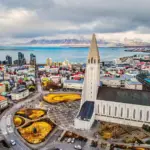
You Dogons are a people who live in Mali, West Africa, known for being guardians of ancestral knowledge valuable. Their culture is rich and diverse, with beautiful art, music, and a strong spirituality. The Dogons have fascinated the world with their advanced knowledge of astronomy and their unique cosmological system.
Main points of this article:
- You Dogons are a people who live in Mali, in West Africa.
- They are known as guardians of ancestral knowledge valuable.
- They have a rich and diverse culture, with beautiful arts and music.
- They are famous for their advanced knowledge of astronomy.
- The Dogon people continue to value and preserve their ancestral knowledge to this day.
Origins of the Dogons
The Dogon are an ethnic group living in an isolated mountainous region of Mali, West Africa. They are believed to be descendants of one of the earliest civilizations in West Africa, with evidence of their presence in the region dating back over 1,000 years.
Historians and anthropologists agree that the Dogon have a rich ancestral history, with many rituals and practices dating back centuries. However, the precise origins of the Dogon people are still the subject of debate and speculation. Some scholars believe they originated in ancient Egypt and migrated westward, while others argue that they came from the mountains of Tibet.
Regardless of their origins, the Dogon are known for their ability to preserve cultural traditions and ancestral knowledge, and for their ability to adapt to changes in the modern world without losing their roots. Their story is an important part of West African history and an inspiration to many scholars around the world.

Dogon Society and Organization
THE Dogon society It is complex and organized, based on their cultural beliefs and traditions. The Dogon live in a community governed by local leaders, known as Hogon. Each village has its own Hogon, who is responsible for making important decisions for the community, including religious and social matters. The Hogon is considered a spiritual leader and is responsible for maintaining order within the community.
Besides the Hogon, Dogon society is divided into different groups, such as clans and families. Family ties are very strong among the Dogon, and families are responsible for passing on cultural traditions and ancestral knowledge from generation to generation.
The Dogons believe in the existence of a supreme being, known as Amma. They believe that Amma created the universe and all things, and that he is responsible for the balance and harmony of the world. The Dogons also believe in ancestral spirits and mythological beings, which are evoked in religious ceremonies and rituals.
The Dogon's social organization is strongly based on their belief in balance and harmony. They believe that everything in the universe is interconnected and that there must be balance between humans and nature. Therefore, the Dogon have great respect for the environment and believe in the importance of preserving nature.

Beliefs and Spirituality of the Dogons
The Dogons have a unique system of beliefs and spiritual practices that reflect their deep connection with nature and the universe. Their beliefs are based on ancestral stories and oral traditions passed down from generation to generation.
The Dogons believe in a creator god, called Amma, who created the universe and everything in it. Amma, however, is not directly worshipped or worshipped by the Dogons.
Instead, the Dogon believe in a number of supernatural beings, such as the Nommos, aquatic beings believed to have originated from the Sirius star system and considered divine messengers. The Nommos are believed to have brought wisdom and knowledge to the Dogon, including sacred geometry and their cosmological knowledge system.

Religious Ceremonies
The Dogons perform a series of religious ceremonies throughout the year, designed to honor their ancestors and establish a connection with the spiritual world. One of the most important ceremonies is Sigui, a festival that occurs every sixty years and is associated with the cycle of Sirius and the renewal of life.
The Dogon also perform ritual dances, performed in elaborate masks, which are considered sacred. These dances, accompanied by traditional music, are intended to invoke spirits and honor ancestors.
The Dogon's spiritual beliefs and practices are deeply rooted in their ancestral culture and history, and are an essential part of the Dogon people's identity.

Dogons and Astronomy
The Dogons are known for their vast astronomical knowledge, dating back centuries. Their understanding of the Sirius star system is particularly remarkable. More recent discoveries suggest that the Dogons possessed advanced knowledge of the existence of the white dwarf star Sirius B, which was only proven by science in the 19th century.
According to Dogon oral tradition, centuries ago, amphibian-like extraterrestrial beings (called Nommos) visited Earth, and from then on, the Dogon began to study and connect with the cosmos. They believed that the star Sirius, which they called Sigi Tolo, was the home of these beings. According to the stories, the beings taught the Dogon various astronomical knowledge, including the orbits of the planets in the solar system and the existence of the white dwarf star Sirius.
Dogon astronomy is embedded in their culture and religion, and knowledge is passed down from generation to generation as a way of preserving tradition and ancestral knowledge. Dogon religious ceremonies frequently involve astronomical knowledge, and their rituals are often performed in honor of the Sirius star system and its associated deity.
THE astronomical knowledge of the Dogons has fascinated scholars worldwide, and many theorists have attempted to explain how they acquired this advanced knowledge. While some theories suggest supernatural influence, others believe the knowledge was acquired through contact with advanced ancient civilizations. Regardless of the origin of the knowledge, the fact remains that the Dogon have managed to preserve and transmit this knowledge for centuries, and it continues to inspire people around the world.
Art and Culture of the Dogons
The Dogons are known for their rich cultural tradition and considerable artistic abilities. art of the Dogon is a vibrant expression of their customs and beliefs, influenced by the natural environment in which they live.
THE art of the Dogon is extremely significant, as it is often used as a means of transmitting ancestral knowledge. Their sculptures, for example, were created from wood, clay, bronze, and other materials, and often depict human figures, animals, and symbolic objects. Dogon masks, which are used in rituals and dances, are also highly valued as works of art.
Music and dance also occupy a fundamental place in Dogon culture. Their songs and dances are often performed during religious ceremonies and community festivals, and are an important way to celebrate life and honor ancestors.
THE culture of the Dogon people is transmitted through stories, told by their elders, who preserve the oral tradition. These stories tell of the Dogons and their relationship with the universe, nature, and the supernatural beings that surround them.
The art and culture of the Dogons are an inexhaustible source of beauty, knowledge, and inspiration, and continue to fascinate people around the world.
Dogons in the Modern World
While the Dogon are known for preserving valuable ancestral knowledge, they have also adapted to the modern world. Today, many Dogon have access to formal education and work in various sectors of the economy. However, their culture and traditions continue to be valued and studied worldwide.
Furthermore, the Dogon are a major tourist attraction in the territories where they live. Visitors can experience the rich culture and art of the Dogon people, as well as witness their religious ceremonies and learn about their unique cosmological knowledge system. Tourism also provides an important source of income for many Dogon communities.
THE influence of the Dogon in the modern world can be seen in various fields, including astronomy. The Dogon's advanced knowledge of the Sirius star system has been studied and recognized by scientists. Furthermore, many artists and designers draw inspiration from traditional Dogon art and culture to create contemporary works.
Despite the changes and challenges faced in the modern world, the Dogon remain a resilient people, proud of their history and traditions. Their cultural and scientific legacy is a valuable contribution to humanity, and its influence continues to be felt in the modern world.
Dogons: Preservers of Tradition
The Dogon are recognized worldwide for being the guardians of valuable ancestral knowledge. Preserving tradition and valuing knowledge passed down from generation to generation are fundamental to Dogon culture.
The Dogon believe their traditions are essential to maintaining the natural order of the universe and society. This knowledge is transmitted primarily through oral tradition, as writing was not part of Dogon culture until the arrival of colonizers in the 20th century.
Despite the challenges faced by the Dogon community, including the pressure of modernization and the loss of territory, they continue to preserve and value their ancestral knowledge. The unique cosmological knowledge of the Dogon, for example, has been studied by astronomers, anthropologists, and historians over the years.
The importance of preserving the Dogon tradition goes beyond the community itself; it has a global impact on valuing diversity. cultural and understanding of history and evolution of humanity.
Tourism in the Dogon Territories
If you're planning a visit to Mali, exploring the Dogon territories is a unique and unforgettable experience. With a culture and history rich, the Dogon are known for being guardians of valuable ancestral knowledge and its incredible connection with astronomy.
To visit the Dogon, you can hire local tour guides and organize tours of the region. One of the most popular attractions is the Bandiagara Cliff, an impressive rock wall stretching over 200 km and considered a World Heritage Site. worldwide by UNESCO.
Another unmissable experience is to witness the Dogons in their cultural and religious celebrations, which include dances, music, and ceremonies that have been passed down from generation to generation for centuries.
It's important to remember, however, that the Dogon region faces some challenges regarding infrastructure and security. Therefore, it's important to seek up-to-date information before plan your trip and follow the recommendations of tourist guides and local authorities.
Despite the challenges, visiting the Dogon territories is an opportunity to experience a fascinating culture and history and learn from the ancestral knowledge of a people who have much to offer.
Challenges and Opportunities for the Dogons
Despite their rich culture and ancestral knowledge, the Dogon face contemporary challenges. One of the main challenges is the pressure for cultural change and the loss of traditional values. The growing influence of global culture and urbanization are among the factors threatening the preservation of the Dogon's rich cultural heritage.
Furthermore, the region where the Dogon live is frequently affected by prolonged droughts and water shortages, which pose challenges to food security and community survival.
However, there are also significant opportunities for the Dogon in the modern world. Tourism is one such opportunity, as visitors from around the world come to explore the Dogon's culture and ancestral knowledge. This can help support the economy. local and raise awareness of the culture Dogon.
Furthermore, the valorization of ancestral knowledge The Dogon's traditional knowledge of agriculture, medicine, and other areas can be applied to modern solutions to global problems such as food security and health.
Challenges and Opportunities for the Dogons
| Challenges | Opportunities |
|---|---|
| Loss of traditional values | Cultural tourism |
| Shortage of water resources | Valorization of ancestral knowledge |
| Influence of global culture | Sustainable development |
The Dogon face significant challenges, but also significant opportunities as they navigate the modern world. By valuing their culture and ancestral knowledge, they can build a sustainable future for themselves and future generations.
Dogons: A Legacy for Humanity
The Dogon are a people who left a great legacy to humanity. Their cultural and scientific contributions are admired and studied to this day, inspiring people around the world.
With their profound understanding of astronomy, the Dogons were able to unravel previously unknown mysteries of the universe. Their advanced knowledge of the Sirius star system and its relationship to other celestial bodies is a testament to their ancient wisdom.
But the Dogon aren't limited to astronomy alone. Their culture and traditions, passed down from generation to generation, are an example of how preserving ancestral knowledge can enrich modern life. Their traditional artwork, music, dances, and cultural traditions are an important part of their legacy to humanity.
The Dogon also face contemporary challenges, such as sustainable development in their communities, but they have opportunities for growth and innovation. The knowledge and wisdom of the Dogon continue to impact humanity and inspire people to value and preserve their own cultural traditions.
In short, the legacy of the Dogon for humanity is invaluable. Their knowledge, beliefs, traditions and contributions to culture and science are a source of inspiration and fascination.

Conclusion
Our journey with the Dogons allowed us to understand the richness of this African people's culture and ancestral knowledge. From their ancient origins to their spiritual practices and advanced astronomical knowledge, the Dogons are a human treasure that deserves to be valued and preserved.
We explored the society, social organization, beliefs, cave paintings, art, and culture of the Dogon, as well as their adaptation to the present day and the challenges and opportunities they face. We concluded that legacy of the Dogon is vast and inspiring, and that his contributions to humanity deserve to be recognized and studied.
Finally, our summary about the Dogon leads us to reflect on the importance of preserving and valuing the ancestral traditions and knowledge of different peoples around the world. The Dogon people are a living example of how the past can be a source of inspiration and learning for humanity's present and future.
FAQ
Q: Who are the Dogon?
A: The Dogon are a people known for being guardians of valuable ancestral knowledge. They inhabit the Mali region of West Africa.
Q: What is the origin of the Dogon?
A: The Dogon have a rich and intriguing ancestral history. It is believed that they settled in the region where they currently live thousands of years ago.
Q: What is Dogon society like?
A: A Dogon society It is complexly organized, with well-defined systems of government and community leadership. Its beliefs and traditions play a fundamental role in social organization.
Q: What are the beliefs of the Dogon?
A: The Dogon possess a unique cosmological knowledge system, which includes a deep understanding of astronomy. Furthermore, they have religious practices and ceremonies that reflect their spiritual beliefs.
Q: What is the Dogon's connection to astronomy?
A: The Dogon are known for their advanced knowledge of the Sirius star system and its relationship to other celestial bodies. Their understanding of astronomy has fascinated scientists and scholars.
Q: What are the cultural expressions of the Dogon?
A: Dogon culture is rich in art, music, dance, and traditions passed down through generations. Their traditional artwork is renowned worldwide.
Q: How have the Dogon adapted to modern life?
A: The Dogon have adapted to modern life, but they have also strived to preserve their ancestral traditions and knowledge. Their culture continues to be valued and studied worldwide.
Q: Is it possible to visit Dogon territories?
A: Yes, it is possible to visit Dogon territories as a tourist. There are unique attractions and experiences that allow visitors to experience the Dogon culture and way of life up close.
Q: What are the challenges faced by the Dogon?
A: The Dogon face contemporary challenges, such as preserving their culture in times of globalization and the search for sustainable development in their communities.
Q: What is the legacy of the Dogon to humanity?
A: The legacy of the Dogon includes his valuable cultural and scientific contributions, which continue to inspire and fascinate people around the world.
Lucas Wanderlust has a tireless spirit of adventure, always seeking new travel experiences. Fascinated by the world and the possibility of exploring unknown destinations, he fell in love with the sense of freedom and self-discovery that traveling alone provides. With a backpack on his back and a heart open to the unknown, Lucas embarks on exciting journeys, where each destination becomes a unique chapter in his life story. He gives himself body and soul to the magic of solo travel, inspiring others to follow in his footsteps and discover themselves through adventure.







